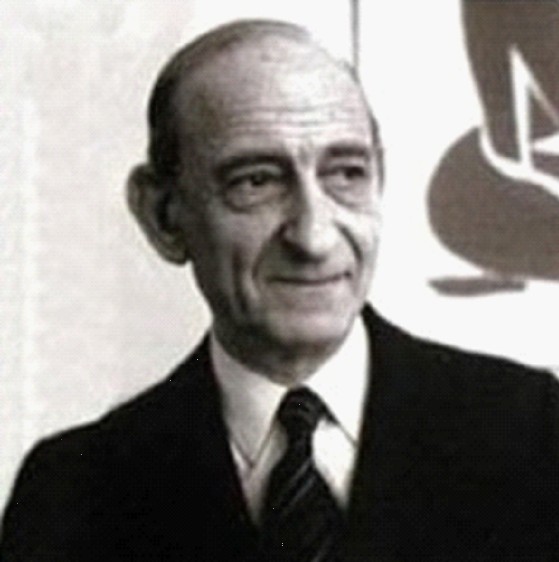
Biography
Raymond Aron was a French political scientist, sociologist, and journalist who made major contributions to the study of totalitarianism, liberalism, Communism, and international relations. Born into a Jewish family in Paris on March 14, 1905, his high school studies at Lycée Hoche in Versailles and the Lycée Condorcet in Paris prepared him for his entrance into France’s eminent Ecole Normale Supérieure, the university charged with training many of the country’s academics. At the Ecole Normale, Aron met many figures who would play a prominent role in postwar French intellectual life, such as Jean-Paul Sartre, Paul Nizan, Daniel Lagache, and Georges Canguilhem. He went on to take first place in the state-run agrégation examination in philosophy in 1928.
After mandatory military service at Fort de Saint-Cyr, Aron moved to the German city of Cologne in 1930, where he took a lecturer position at the University of Cologne. During this period he focused on German thought broadly construed, including its major philosophers, sociologists, and political and military thinkers. It was during this period that he began his lifelong engagement with the work of Max Weber. Witnessing Hitler’s rise to power and even Nazi book burnings in Berlin, Aron presciently concluded that war was inevitable and left Germany in 1933. He replaced Jean-Paul Sartre at a high school in Le Havre, France. He married Suzanne Gauchon the same year, and they had their first child one year later.
In 1935, the fruits of Aron’s stay in Germany resulted in his first publication, La Sociologie allemande contemporaine (Contemporary German Sociology), which mixed analysis of the rise of Nazism with analysis of the thought and political influence of Max Weber. In 1938, Aron defended his doctoral thesis, titled Introduction à la philosophie de l’histoire (Introduction to the Philosophy of History), which laid important groundwork for much of his future thought, including his criticism of positivism.
When World War II broke out in 1939, Aron was teaching at the University of Toulouse and joined the French air force. After France fell, he joined the Free French forces of General Charles de Gaulle in London, and became the director of their newspaper, La France libre (Free France), from 1940 to 1944.
After the liberation, Aron returned to Paris, where he would remain for the rest of his life. He taught at the National School of Administration, the Institute of Political Studies, and the Sorbonne. He also founded a journal with Sartre called Les Temps modernes in 1945 and another journal titled Combat a year later with Albert Camus. However, Aron broke with Sartre in 1947 over the latter’s increasingly implacable and dogmatic Communism. After parting from Les Temps modernes, he took up a position as a columnist at the center-right French newspaper Le Figaro. He enjoyed an illustrious thirty-year career at Le Figaro, and in his columns he blended wide reflection about the nature of modern politics, war, and international relations with always-insightful analysis of the major political issues of the day. His final journalistic position was at the newspaper L’Express, where he was president of the board of directors.
As a journalist, Aron had a reputation for intellectual independence and a willingness to break from party orthodoxy. In the fifties and early sixties, Aron supported the strong anti-Communist stance of General De Gaulle. Yet, in the sixties, he also enraged Gaullists by criticizing De Gaulle’s Algeria policy. When De Gaulle turned against Israel in the wake of the 1967 war, Aron offered a brilliant analysis of De Gaulle’s Middle East policy and his invocation of historical anti-Semitic tropes.
Aron was unbelievably productive in the post-war period. Along with thousands of journalistic columns, Aron also produced hundreds of essays and many scholarly books, some of which were published posthumously. The postwar period saw the publication of many of his seminal books such as Les Guerres en chaîne in 1951 (published in English as The Century of Total War, 1954), and his most famous work in 1955, L’Opium des intellectuels (The Opium of the Intellectuals), which sought to understand and undermine what he saw as the political myths of the left, and especially Marxism. Aron would also write definitive works in the field of international relations, such as his 1962 Paix et guerre entre les nations (Peace and War: A Theory of International Relations, 1966), and in sociology/political philosophy with his 1967 Les Étapes de la pensée sociologique (Main Currents in Sociological Thought).
Aron had a decisive influence on the political culture in France and in Europe more generally. Through his writing he gave anti-totalitarian liberalism intellectual heft and political respectability. Along with his friends, the political philosopher Bertrand de Jouvenel and the historian François Furet, he revived the serious study of Alexis de Tocqueville, who had fallen into neglect in France. Aron taught and mentored many figures who would become leading lights in their own rights in post-war French liberalism including André Glucksmann and Pierre Manent. He maintained important intellectual friendships with many French and foreign politicians and thinkers, including Henry Kissinger and Allan Bloom. His public break with Sartre over the latter’s dogmatic Communism provided immense symbolic encouragement to French intellectuals (and others) hoping to break the left-leaning ideological conformism that defined much of European intellectual life after the war.
Raymond Aron died on November 17, 1983, while returning from testifying in a trial in favor of de Jouvenel, who had been wrongly accused of collaborating with the Nazis. Published the year of his death, his Mémoires offer an indispensable portrait of the ideological currents of the twentieth century.
